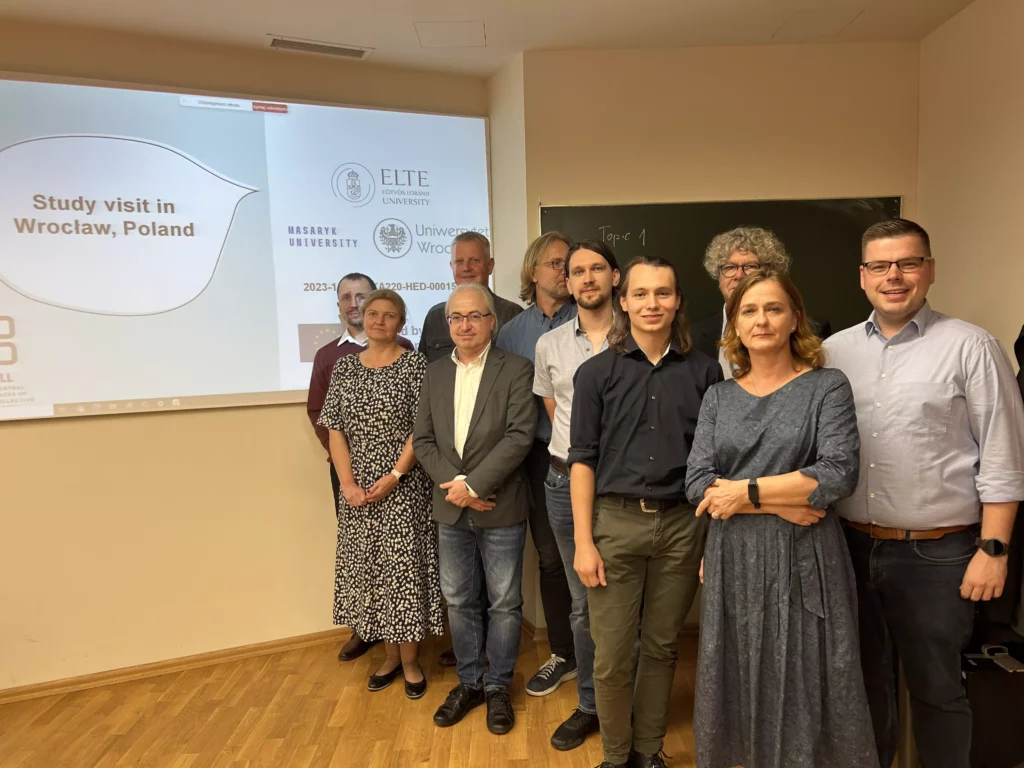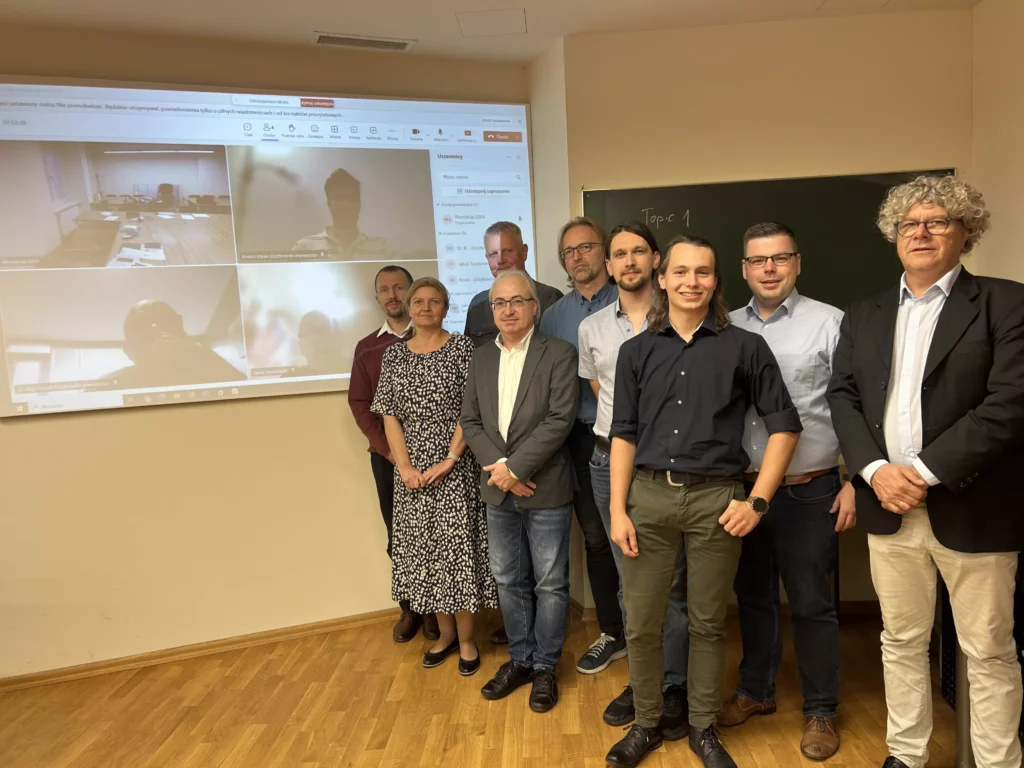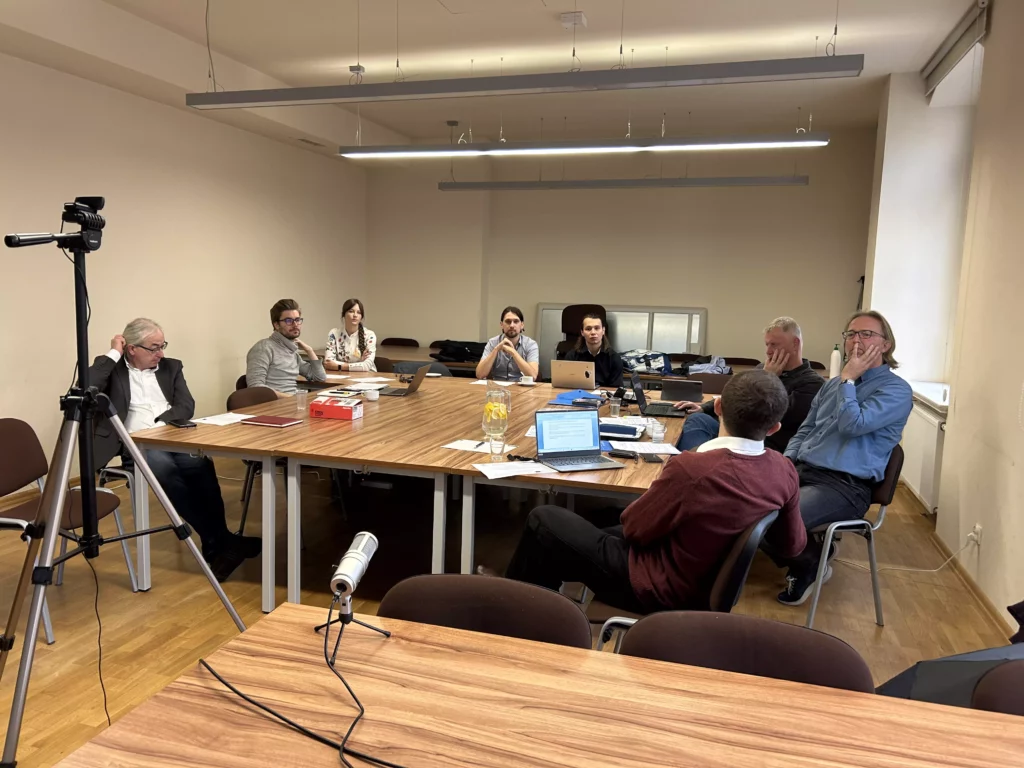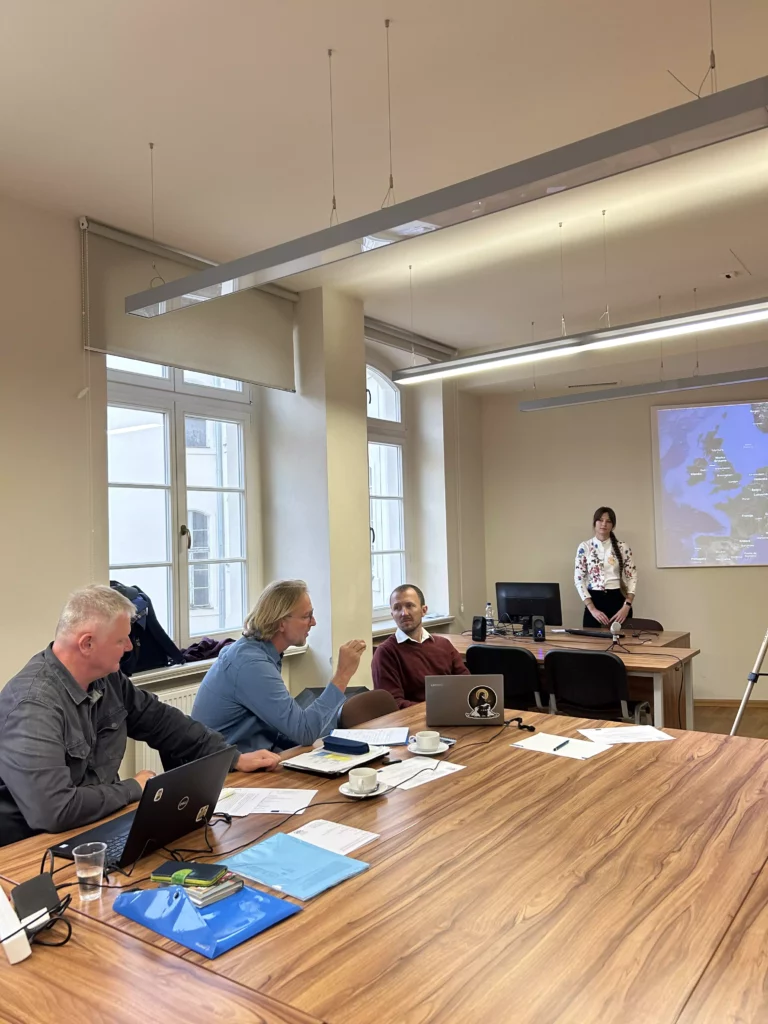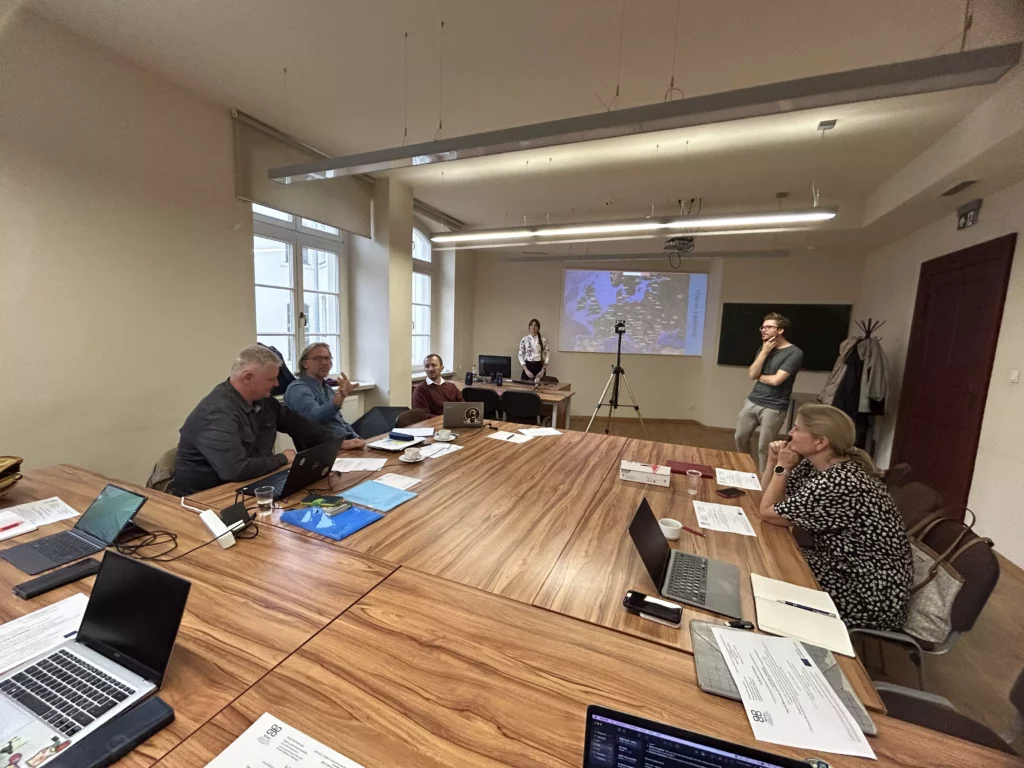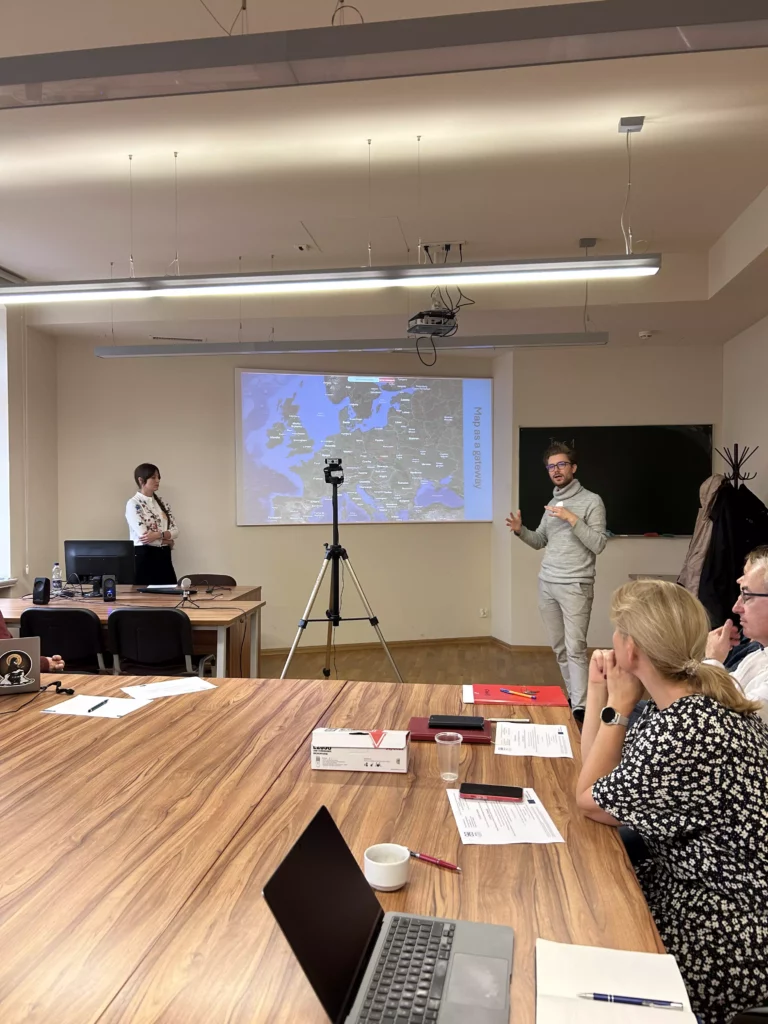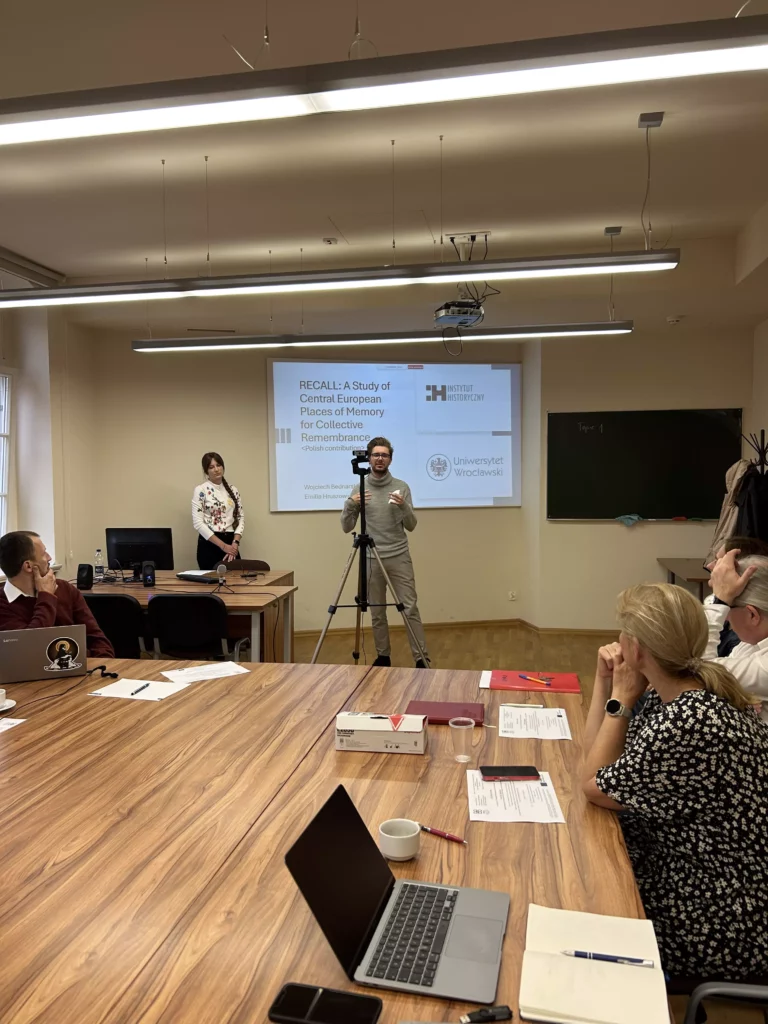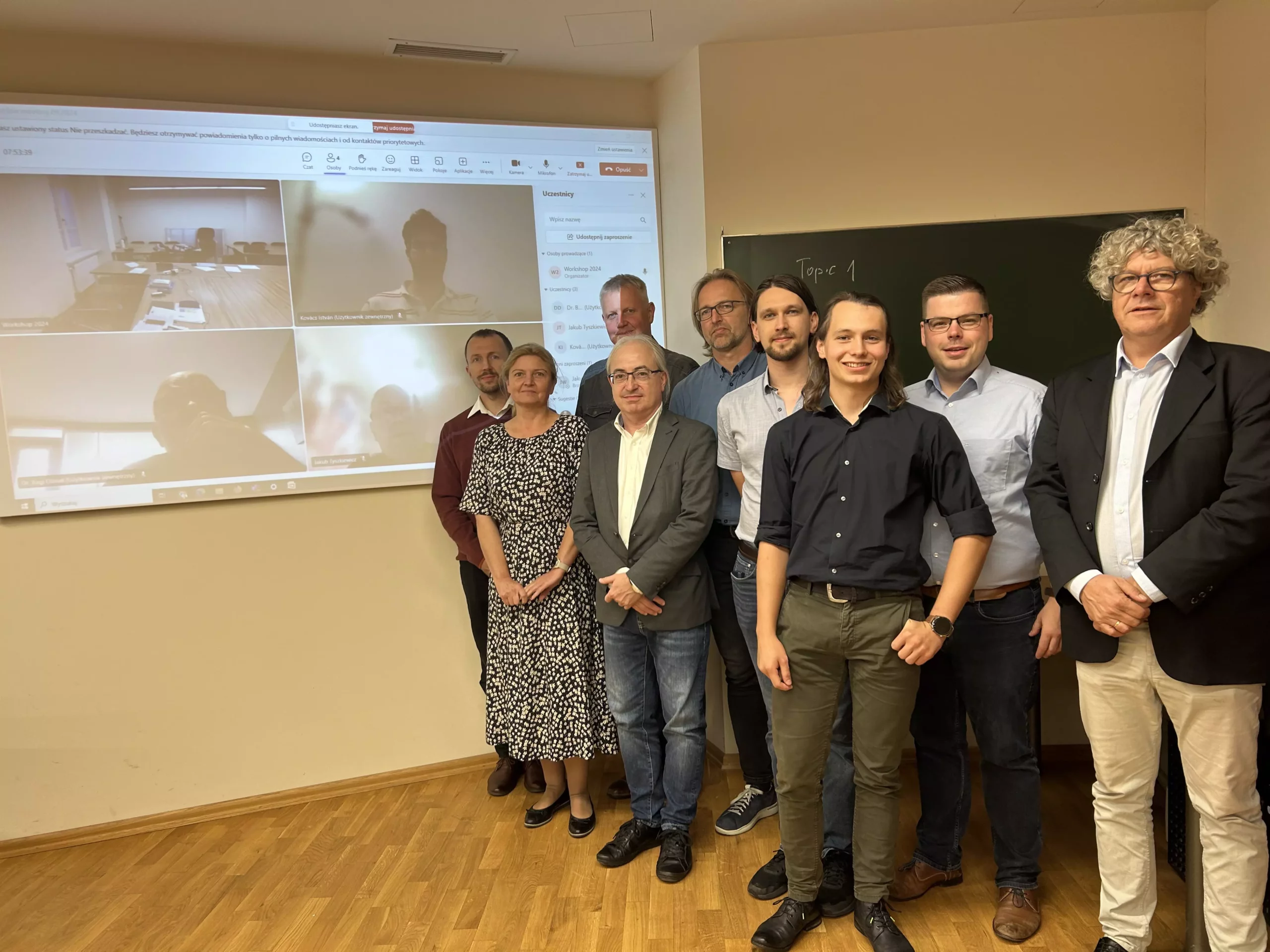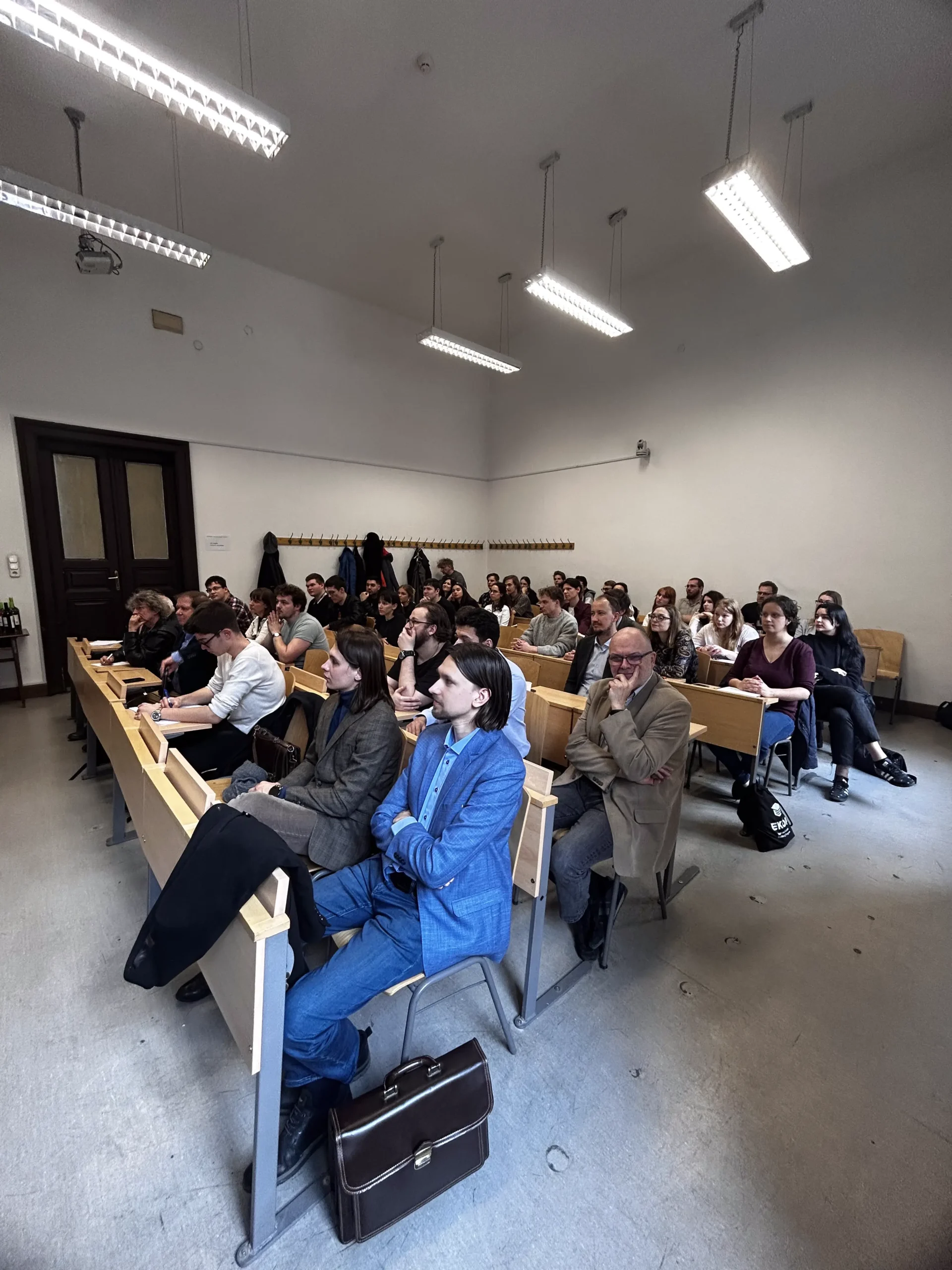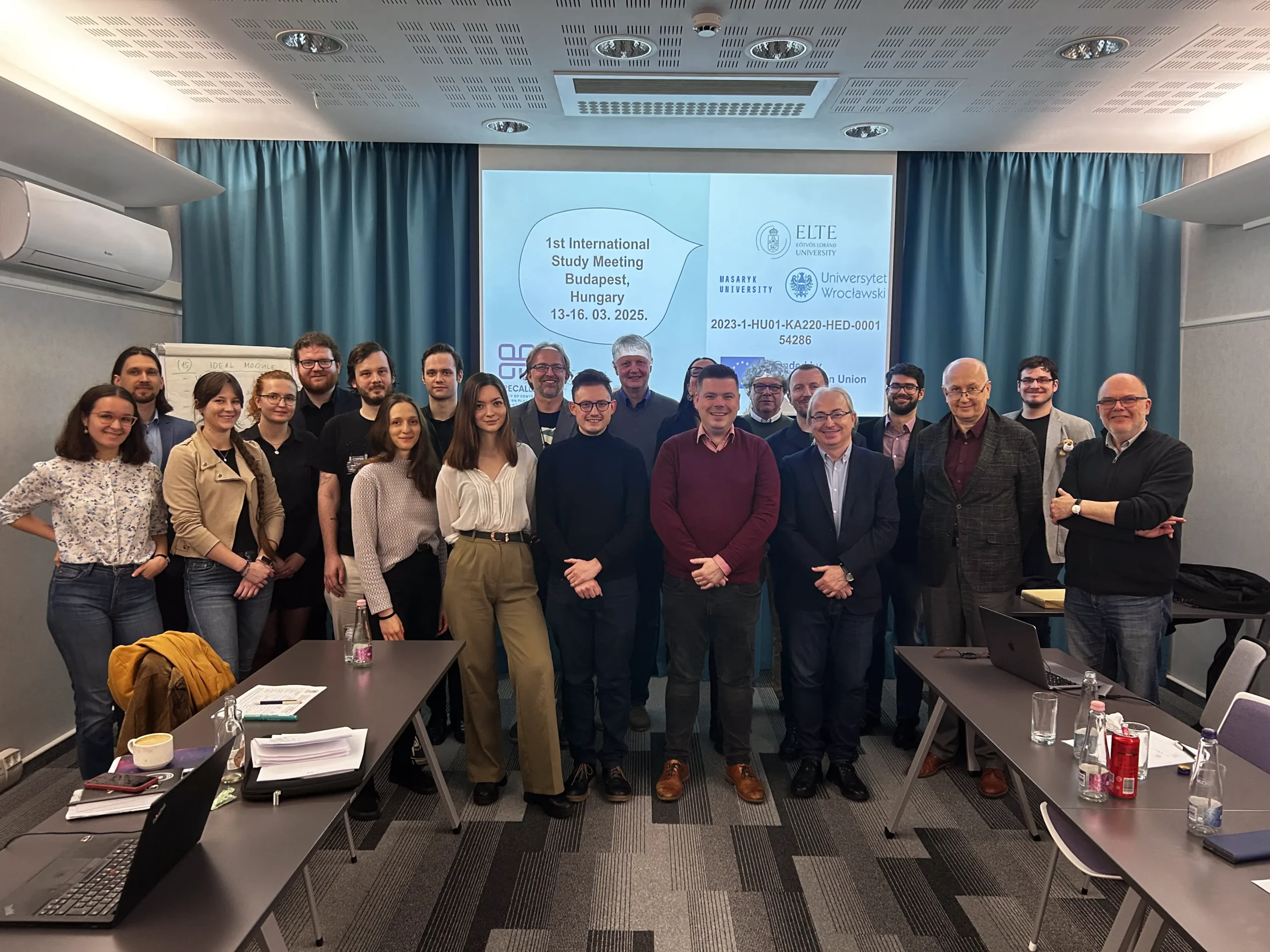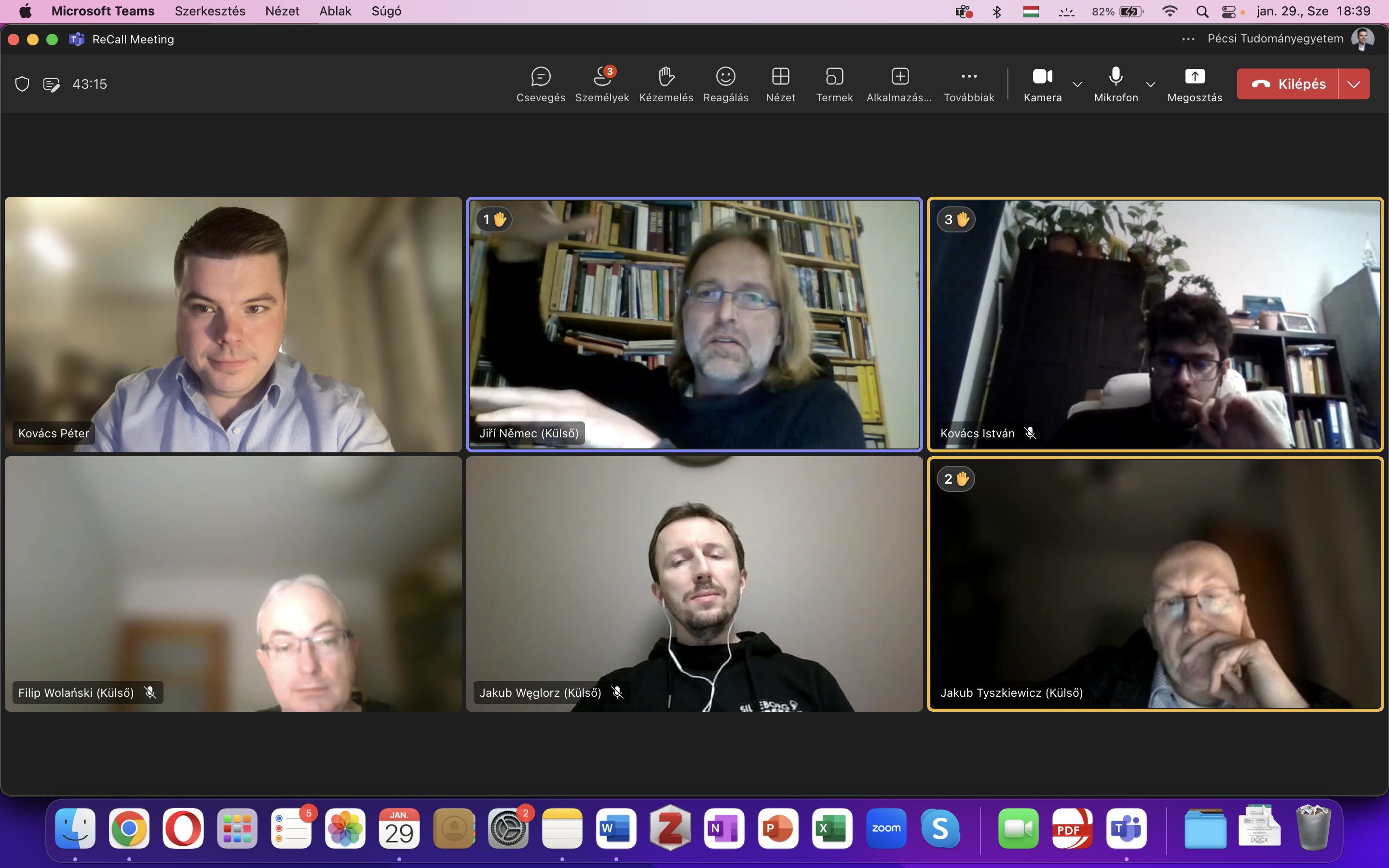In the heart of Central Europe, the historic city of Wroclaw served as the setting for the latest study visit of the RECALL project. Rich in cultural heritage and a testament to centuries of political and religious influence, Wroclaw was chosen as the ideal location for examining national memory sites and figures crucial to preserving and promoting Central European identity across borders.
Wroclaw’s layered history, from its Gothic architecture to its post-World War II reconstruction, provided the perfect backdrop for discussions on the intersection of memory, identity, and heritage. The study visit was not only an exploration of the city’s historical significance but also a critical step forward in the RECALL project’s mission to map and showcase shared European narratives.
The visit kicked off with a full day of working sessions, where the project team presented updates on the progress made since the last meeting. Students took the stage to share insights on selected memory sites, while detailed discussions were held on overcoming challenges in selecting figures and developing the iconography for the project’s digital outputs.
Key topics of discussion included:
- Progress reports from each national team.
- An overview of the project’s website and catalogue developments.
- Plans for integrating memory sites into thematic maps.
- Setting clear milestones for future tasks, with a focus on course development for 2025.
In a significant development, all key topics outlined in the project framework were finalized ahead of the September 15 deadline. Detailed materials and data were prepared for each topic, which are now fully integrated with the thematic maps. The project currently boasts 15 thematic topics spread across four scientific layers, encompassing more than 40 significant historical events, figures, and over 300 historical facts, including artworks and memorial sites. These visual and textual elements form the backbone of the RECALL project, illustrating the intricate connections between Central European memory and historical landmarks.
The working day allowed participants to dive deep into the representation of these historical figures and events, ensuring that the project remains reflective of both national identities and a broader shared Central European history.
The visit concluded with a tour of the Wroclaw Cathedral, a site deeply embedded in Poland’s religious and political memory. This exploration sparked lively debates among the project’s participants on how best to incorporate religious sites into the thematic maps.
Key outcomes of the visit included:
- Presentations of additional Polish memory sites connected to Wroclaw Cathedral.
- A consensus on the need to balance religious and political memory within the project’s framework.
- Finalizing the methodology for integrating religious sites into the project’s digital maps, ensuring that both visual elements and historical data are accurate and engaging.
By the end of the visit, the project team had successfully refined its approach to integrating memory sites across Central Europe. The focus now is on presenting overlapping historical narratives in a clear and user-friendly format. Several key sites and historical figures have been confirmed for inclusion in the thematic maps, furthering the project’s aim of mapping shared European memory.
This Wroclaw study visit is part of a broader series of research trips to cities like Brno and Budapest, where similar discussions are taking place. These hands-on explorations, combined with collaborative academic presentations and project planning, have been instrumental in advancing the RECALL project’s goal: preserving Central European identity through shared memory.
